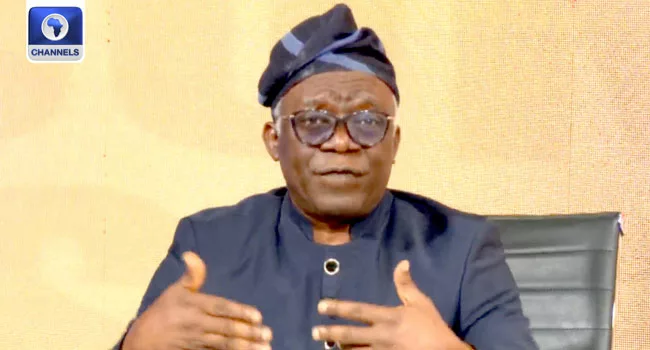Human rights activist and Senior Advocate of Nigeria (SAN), Femi Falana, has called into question the Federal Government’s transparency regarding the electricity subsidy regime.
Falana’s concerns stemmed from varying official statements that seemed to contradict each other about the status and rationale behind the electricity subsidy removal and subsequent implications for Nigerians.
Falana, who spoke on Channels TV on Sunday, reminded the public that on March 23, 2021, the Federal Government, through the Special Adviser to then then-President Muhammadu Buhari on Infrastructure, Ahmad Zakari, had declared an intent to end electricity subsidies by the year end. Zakari argued that an increase in power generation could halve tariffs, making subsidies unnecessary.
This position was seemingly corroborated in 2022 by the immediate-past Minister of Finance, Budget and National Planning, Zainab Ahmed, who indicated during a virtual meeting with African Finance Ministers and the International Monetary Fund (IMF) that the government had phased out electricity subsidies in a quiet, incremental manner.
Mrs Ahmed had noted, “We have been able to quietly implement subsidy removal in the electricity sector… We did that incrementally over time by carefully adjusting the prices at some levels while holding the lower levels down.”
Contrastingly, the narrative shifted when the current Minister of Power, Adebayo Adelabu, in January 2024, stated that the government was still subsidising electricity, with a subsidy amounting to over N3 trillion.
This significant financial burden, according to Adelabu, justified the sharp tariff increase for urban consumers, known as ‘Band A’ consumers, which took effect from April 1, 2024.
Highlighting the disparities between the government’s statements and the IMF’s claims, Falana argued that the figures being circulated were misleading and possibly manipulated.
“Whereas the IMF claims that ‘fuel and electricity subsidy will cost Nigeria N2.33tn’ in 2024, the Federal Government has given a subsidy figure of N3tn,” Falana pointed out, questioning the disparity between the conflicting figures.
Falana’s statement underscores a pressing need for clarity and accountability from the Federal Government regarding the electricity subsidy status. He has called for the establishment of a panel of inquiry to investigate Minister Adelabu’s claims and the alleged mismanagement of funds earmarked for the electricity sector, including the N32 billion meant for the provision of three million prepaid meters in 2003.





